10 Best AI and Live Chat Tools for Growing Online Businesses for 2026


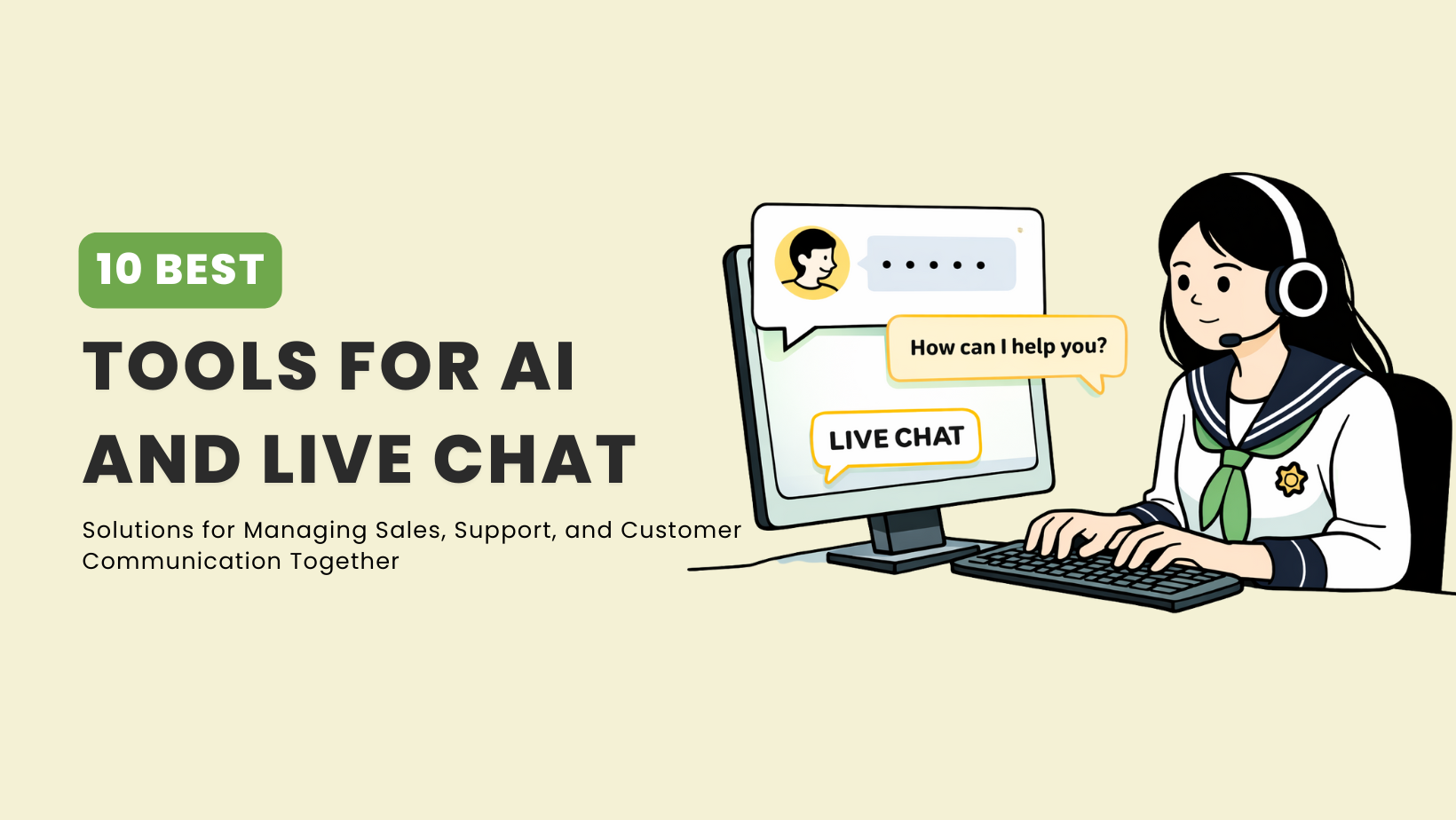
Live chat software now combines AI automation with human support for faster, smarter customer interactions. YourGPT stands out for its AI-first, multi-channel automation and real-time workflows. Zendesk, Intercom, and Freshdesk Messaging suit enterprises needing scale and strong analytics, while Tidio and Wati fit small businesses seeking easy, affordable chat automation.
Live chat gives customers a direct way to reach you when they need help. It cuts out delays and makes support feel immediate.
Adding AI changes the role of live chat. Instead of just connecting people to agents, the system can answer recurring questions, fetch information, and take care of routine tasks in the background. When a query needs context or empathy, the chat passes control to a person without losing history.
The result is not only faster replies. It is a smoother interaction where customers get what they came for without extra effort. Businesses benefit too: fewer repetitive tickets, more time for complex cases, and measurable improvements in satisfaction and conversion.
Choosing the right software is where the real challenge lies. Features look similar across providers, but the difference shows in how well the system fits your business whether you run a small team, an online store, a SaaS product, or a large enterprise.
This guide explains what AI live chat can deliver in 2025 and how to find a platform that matches your needs.
AI live chat software is a support tool that uses artificial intelligence to answer customer queries in real time and connect people to live agents when needed. It reduces wait times for routine questions while making sure complex or sensitive issues still get human attention.
When a visitor opens the chat on a site or app, the AI handles the first response. It can confirm an order, explain pricing, reset a password, or give appointment details. If the request is more complex when the AI can not answer then it routes the chat to a human agent along with the conversation history so the customer does not need to repeat information.
This hybrid solution is valuable across industries. Online retailers use it to reduce repetitive tickets. SaaS companies use it to help with features understanding and setup. Banks use it to handle everyday account questions while escalating loan or investment requests to specialists. Hospitals and clinics use it to manage appointment queries and then connect patients to staff for follow-up.
Modern platforms also integrate with existing systems. They can create tickets in a helpdesk, update orders in an ecommerce platform, push status alerts from a CRM, or collect leads directly into a sales funnel. Instead of staying as surface-level bots, they become part of the workflow.
For businesses, the results are measurable. Customers get faster replies and smoother interactions. Team spend more time on valuable things rather than repeated cases. And support operations scale without any operation load.
AI live chat software is best understood as a bridge. It combines the speed and consistency of automation with the trust and judgement of human support. That balance is what makes it effective.
| Platform name | Best for |
|---|---|
| YourGPT | AI-first automation for support, sales, and operations |
| Zendesk Chat | Enterprise multichannel customer support |
| Intercom | SaaS onboarding and in-app customer engagement |
| Freshdesk | Affordable AI chat for SMBs |
| Drift | Sales teams focusing on lead qualification and meetings |
| Tidio | Small ecommerce stores with Lyro AI for FAQs |
| HelpCrunch | Live chat and email automation for SMBs |
| Wati | WhatsApp-first AI live chat for SMBs |
| Ada | No-code multilingual AI automation |
| LivePerson | Enterprise-scale intent-based AI for global support |
Customer expectations have shifted. People want fast answers, clear guidance, and support that feels consistent at every touchpoint. AI live chat meets these expectations by removing friction from the moments that influence trust and buying decisions.
In 2026, AI is the baseline for any company that takes customer service and growth seriously. Too many businesses still treat it as a simple chatbot. That mistake costs revenue and damages trust. Here is where it actually delivers value:
The companies winning in 2025 are the ones that stop thinking of live chat as customer support software and start treating it as a growth engine.
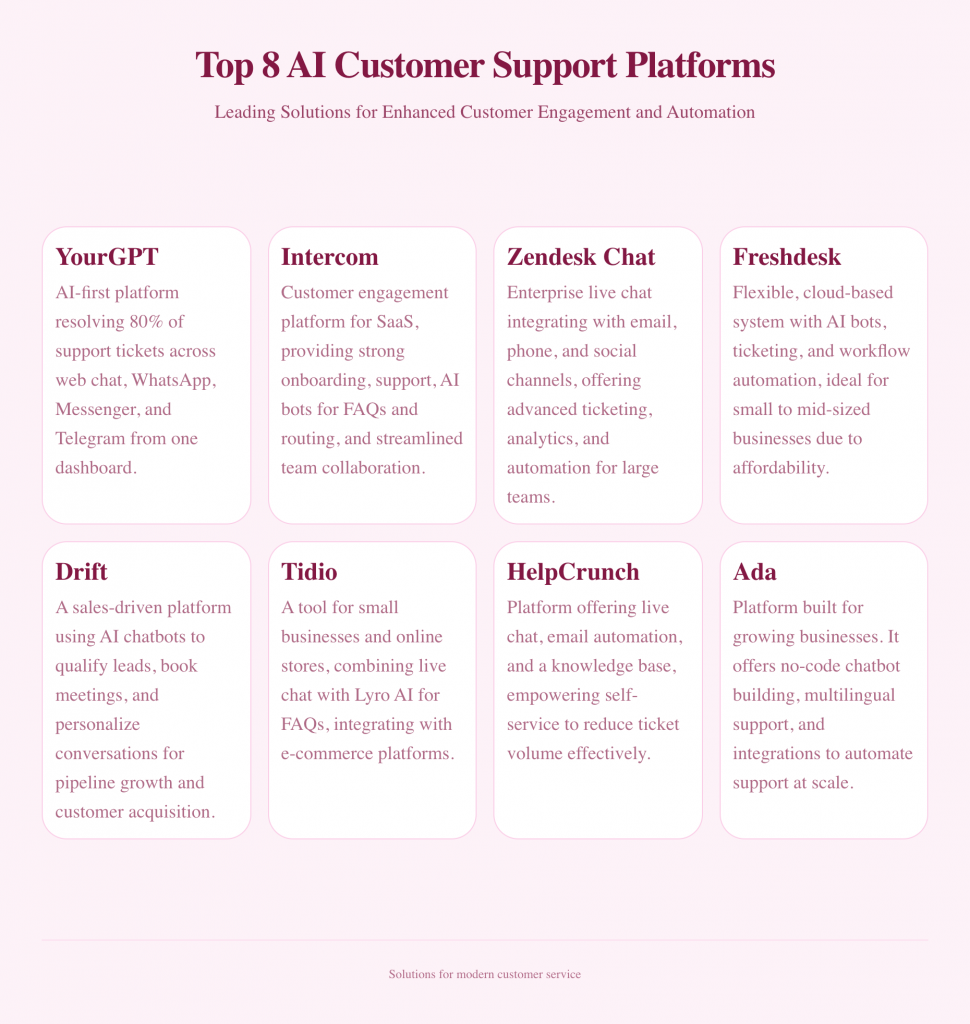
Customer expectations in online business have moved toward instant replies, personalized interactions, and support that never goes offline. Modern platforms meet these demands by pairing AI automation with human agents through live chat. This combination shortens wait times, boosts conversions, and helps teams handle higher volumes without losing quality.
Below is the section that highlights the 8 leading tools for different category.
1. YourGPT: An AI-first platform that resolves 80% of support tickets without human intervention. It trains on your actual product docs, and works across web chat, WhatsApp, Messenger, and Telegram from one dashboard.
2. Intercom: A customer engagement platform with strong onboarding and support features for SaaS. Its AI bots handle FAQs and routing, while its workflows and team inbox streamline agent collaboration.
3. Zendesk Chat: Enterprise-ready live chat software that integrates with email, phone, and social channels. It provides advanced ticketing, analytics, and automation to help large teams manage customer conversations at scale.
4. Freshdesk Messaging: A flexible, cloud-based system with AI bots, ticketing, and workflow automation. Its affordability and ease of use make it a strong choice for small to mid-sized businesses.
4. Drift: A sales-driven platform that uses AI chatbots to qualify leads, book meetings, and personalize conversations. It is ideal for companies focused on pipeline growth and customer acquisition.
5. Tidio: A lightweight tool designed for small businesses and online stores. It combines live chat with Lyro AI for FAQs and integrates with Shopify, WordPress, and WooCommerce.
6. HelpCrunch: A hybrid communication platform that offers live chat, email automation, and a knowledge base. It helps brands reduce ticket volume by empowering customers with self-service options.
8. Ada: An AI customer service platform built for growing businesses. It offers no-code chatbot building, multilingual support, and integrations to automate support at scale.
Choosing the right AI live chat tool can directly shape customer experience, reduce operational costs, and increase sales. Below are the top platforms helping online businesses deliver faster, smarter, and more personalized support.

YourGPT is an AI-first platform that combines customer support, sales, and operations in one solution. It offers a no-code chatbot builder, advanced AI training on custom data, and omnichannel deployment across web, WhatsApp, Messenger, Telegram, and more.
With its automation-first approach, YourGPT helps businesses handle order queries, reduce cart abandonment, and streamline post-purchase workflows while scaling to enterprise needs.
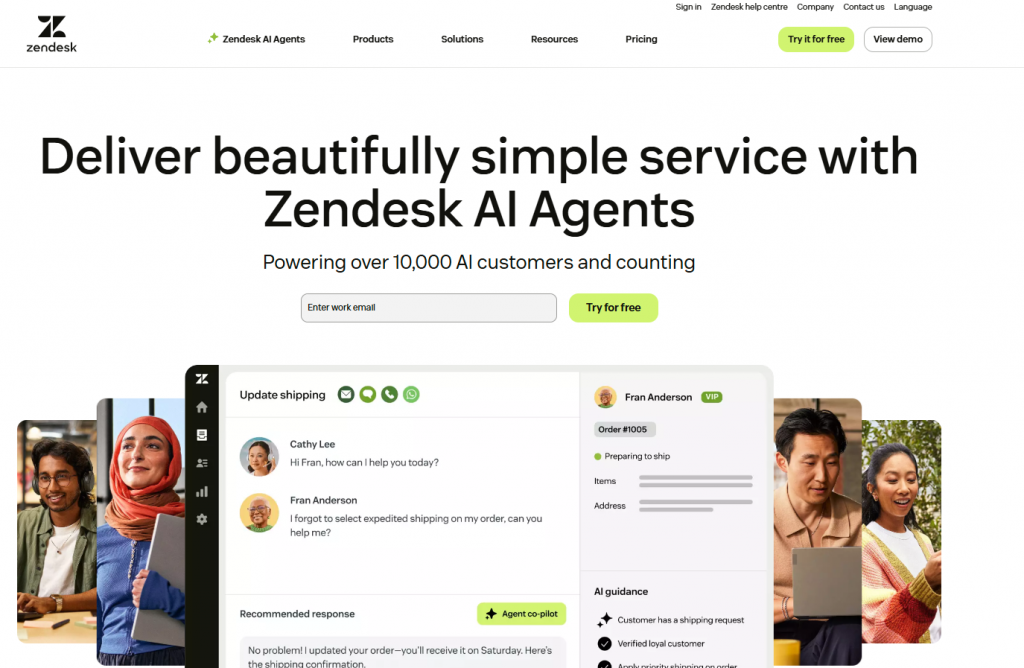
Zendesk Chat is built for enterprises that need a scalable hub to manage customer conversations across email, chat, phone, and social channels. It comes with advanced ticketing, automation, and analytics to streamline support for large teams.
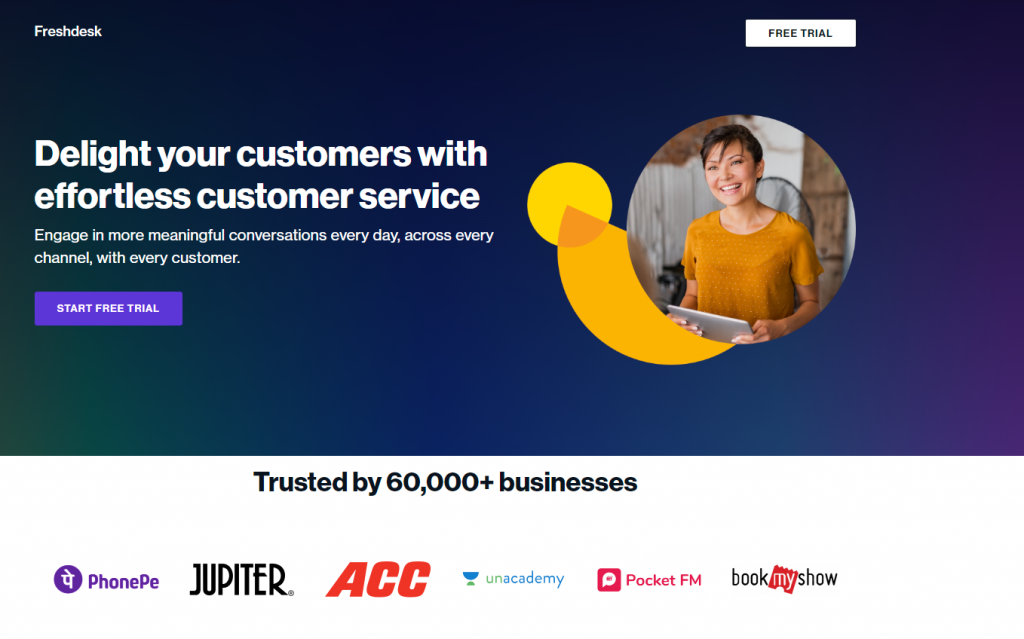
Freshdesk Messaging is a growth-friendly tool designed for small and mid-sized businesses. It includes AI bots, intuitive ticketing, and workflow automation to simplify support while keeping costs low.

Drift is designed for sales-driven teams. Its AI bots qualify leads, book meetings, and personalize conversations, making it a popular choice for companies focused on growth and customer acquisition.

Tidio is a lightweight AI live chat solution designed for small businesses and online stores. It combines live chat with Lyro AI to answer FAQs and integrates with ecommerce platforms like Shopify and WooCommerce.
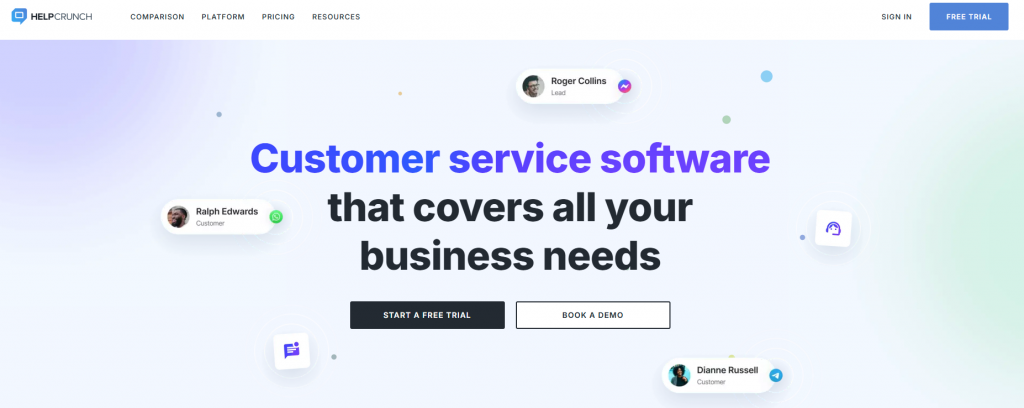
HelpCrunch combines live chat, email automation, and a knowledge base into one platform. It’s designed to reduce ticket volume by giving customers access to self-service resources alongside live chat.
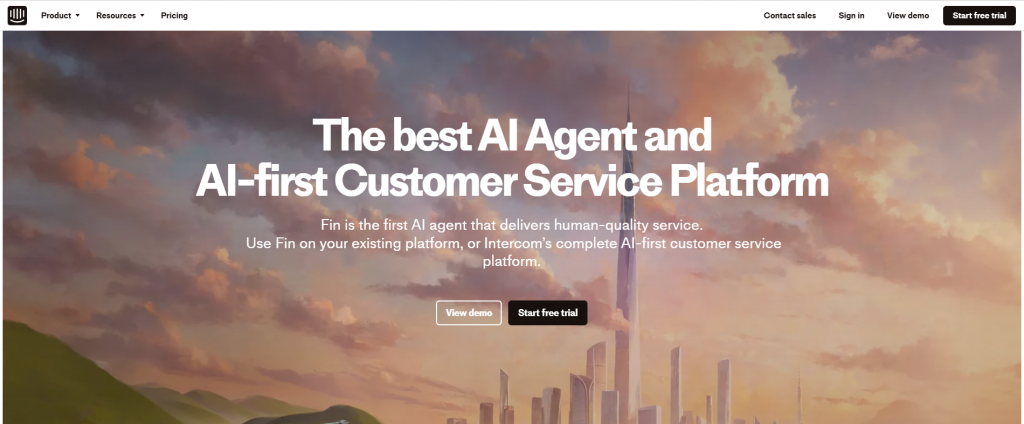
Intercom is a customer engagement platform widely used by SaaS companies. Its AI bots handle FAQs and routing, while workflows and team inbox features streamline agent collaboration.
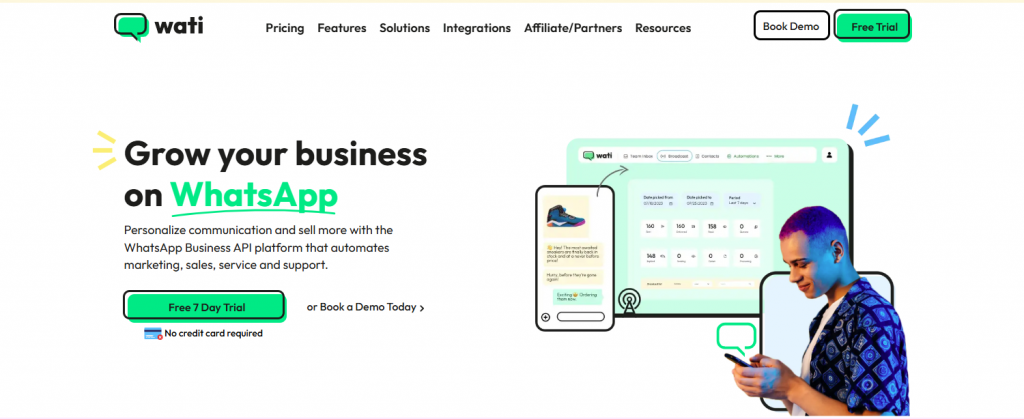
Wati is a WhatsApp first solution built on the official Business API. It enables customer flows, automated reminders. It is not a full live chat solution.

Ada is an AI-powered customer service platform built for businesses that want scalable automation. It goes beyond FAQs by supporting personalized conversations and advanced integrations.
Features
Pros
Cons
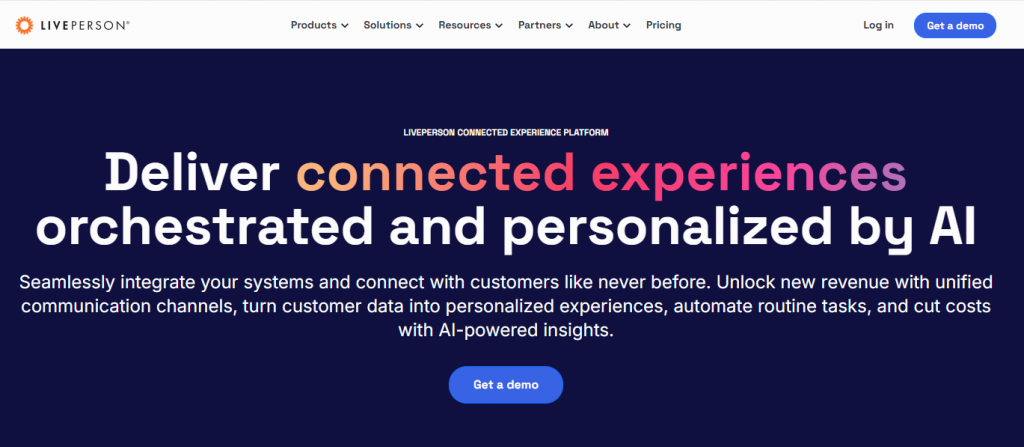
LivePerson is an enterprise-grade solution built for high volumes and complex customer journeys. Its AI predicts intent, automates repetitive tasks, and scales for global support teams.
| Platform | Best For | No-Code Builder | AI Training on Custom Data | Self-Learning | Voice AI | CRM / Helpdesk Integration | Multi-Channel Support | Knowledge Base | Lead Capture | Security & Compliance |
|---|---|---|---|---|---|---|---|---|---|---|
| YourGPT | AI-first automation for support, sales, and operations | ✓ | ✓ (PDFs, Websites, Notion, Google Sheets) | ✓ | ✓ (Voice & Multimodal) | ✓ (CRM, Ecommerce, Slack, Email) | Web, WhatsApp, Messenger, Telegram, LINE | ✓ | ✓ (AI lead forms & workflows) | SOC 2, GDPR, HIPAA-ready |
| Zendesk Chat | Enterprise teams managing large-scale customer conversations | ✗ | Limited (via knowledge base) | ✓ | ✗ | ✓ (Email, Phone, Social) | Web, Social, Mobile | ✓ | ✓ | GDPR, SOC 2 |
| Freshdesk Messaging | SMBs needing affordable AI chat and workflow automation | ✓ | Limited | ✗ | ✗ | ✓ (CRM, Ticketing) | Web, Email, Phone | ✓ | ✓ | Standard |
| Drift | Sales-driven teams focusing on lead generation | ✓ | ✗ | ✗ | ✗ | ✓ (CRM & Marketing Platforms) | Web, Email | ✗ | ✓ (Proactive chat & scheduling) | Standard |
| Tidio | Small online stores and ecommerce support teams | ✓ | ✗ | ✗ | ✗ | ✓ (Shopify, WooCommerce, WordPress) | Web, Messenger, Instagram | ✗ | ✓ | Standard |
| HelpCrunch | SMBs combining live chat, email, and self-service | ✓ | ✗ | ✗ | ✗ | ✓ (Email & CRM) | Web, Email | ✓ | ✓ | Standard |
| Intercom | SaaS companies managing onboarding and support | Limited | ✓ | ✓ (Fin AI) | ✓ (Beta) | ✓ (CRM & App Store) | Web, Email, Mobile | ✓ | ✓ | GDPR, SOC 2 |
| Wati | WhatsApp-first communication for small businesses | ✓ | ✗ | ✗ | ✗ | Limited | WhatsApp, Email | ✗ | ✓ | Standard |
| Ada | Mid-sized to enterprise automation with multilingual support | ✓ | ✓ | ✓ | ✗ | ✓ (CRM, Helpdesk) | Web, Social, Messaging Apps | ✓ | ✓ | GDPR |
| LivePerson | Global enterprises with complex support journeys | Limited | ✓ (AI knowledge integration) | ✓ | ✗ | ✓ (Enterprise CRMs) | Web, Voice, Mobile, Social | ✓ | ✓ | Enterprise grade |
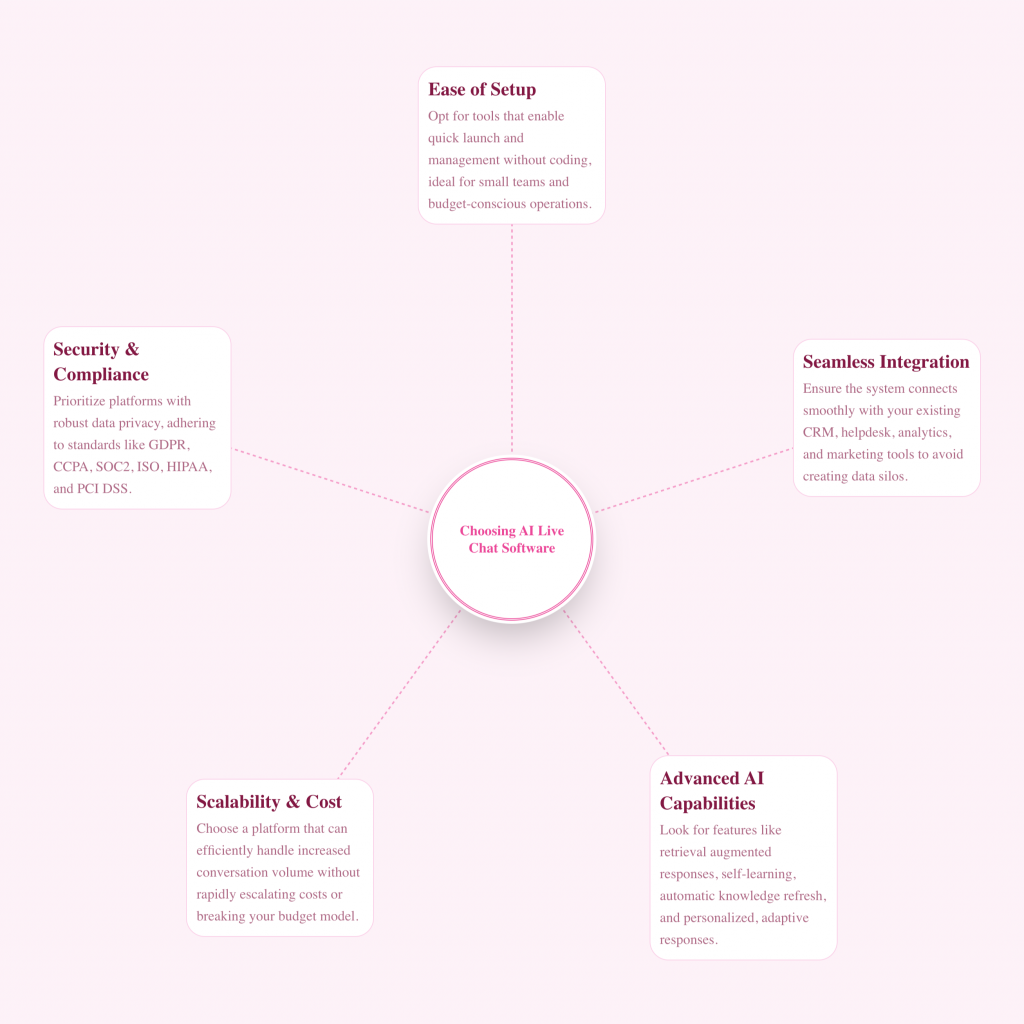
The best AI live chat platform is the one that fits how your business actually runs. Teams want faster replies, lower workloads, clear pricing, and a system that doesn’t disrupt existing workflows. These factors will help you identify what truly supports your goals.
AI live chat is moving from reactive bots to autonomous support layers that sit at the core of business operations. Several technical shifts are driving this change:
1. Agents That Execute (Not Only Respond)
AI models are now paired with orchestration frameworks that can call APIs, trigger workflows, and handle secure transactions. Instead of answering “How do I get a refund,” the AI can process the refund, update the CRM, and send a confirmation, Completing all the steps without any human input.
2. Convergence of Voice and Chat
The line between chat and voice is disappearing. Real-time ASR (automatic speech recognition) and low-latency TTS (text-to-speech) allow customers to switch channels mid-conversation without losing context. A session started on a website chat widget can move to a phone call or smart speaker, with the AI carrying state across channels.
3. Self-Learning Systems
AI learns retrain on unresolved queries, missed intents, and conversation logs. This creates a system that improves accuracy week by week instead of relying on manual updates.
4. Proactive and Predictive Support
AI will not wait for the user to click “Chat.” By analysing session patterns, drop-offs, and behavioural signals, it can initiate timely interventions — guiding a SaaS user stuck in onboarding or nudging an ecommerce buyer at risk of abandoning checkout.
5. Multi-Agent Architectures
Instead of a single bot handling every task, future live chat will rely on multiple specialised agents. A customer-facing agent manages conversation, a business agent executes workflows, another enforces compliance rules, sale agent finds the opportunity to up-cross sell and a validator agent checks knowledge. An orchestration layer coordinates them, ensuring both accuracy and accountability.
These trends signal a clear direction: AI live chat is no longer a customer service add-on. It is becoming an intelligent support infrastructure that reduces human workload, protects accuracy, and directly drives business outcomes.
AI live chat software combines intelligent chatbots with human agents. The AI handles common questions instantly, while human agents step in for more complex or sensitive conversations.
Unlike regular chatbots that follow fixed scripts, AI live chat tools understand user intent, learn from past interactions, and perform actions like booking appointments or checking order status.
Yes, AI live chat is accessible to small businesses. Many platforms offer affordable or even free plans that allow small teams to provide 24/7 customer support efficiently.
AI live chat can check order status, recover abandoned carts, recommend products, and answer customer questions—helping boost sales and build loyalty.
For SaaS businesses, AI live chat helps onboard users, resolve technical questions, and route support tickets to the right teams—improving customer success and reducing churn.
Yes. Trusted platforms use encryption and follow data privacy regulations like GDPR to ensure customer data remains protected and secure.
Yes, most AI chat platforms integrate with CRMs, helpdesks, and e-commerce systems, keeping customer data and conversations unified in one place.
No. AI supports agents by handling repetitive tasks, but human agents are still essential for complex issues and emotional intelligence.
Basic AI live chat setup usually takes just a few hours. Advanced integrations and custom workflows may take longer, depending on your needs.
Key trends include task-completing AI, unified voice and chat experiences, hyper-personalized responses, proactive outreach, and support for multiple languages.
AI live chat is now essential. Customers in 2026 expect quick, accurate, and personal responses. Businesses that meet this expectation earn trust and loyalty, while those that don’t fall behind.
The right platform depends on your needs. Small teams want easy setup, retailers need ecommerce integrations, SaaS companies rely on onboarding and syncing, and enterprises need scale and compliance.
The best results come when AI handles routine tasks and humans focus on empathy and complex issues.
YourGPT follows this balance. It is AI-first, human-guided, and self-learning, built to manage support, sales, and operations across text, voice, and visual channels, helping teams deliver faster and more personal communication at every stage.
Give your customers instant answers, personal support, and around-the-clock availability with the right AI live chat tools.
No credit card required • Quick setup • Integrates with CRMs
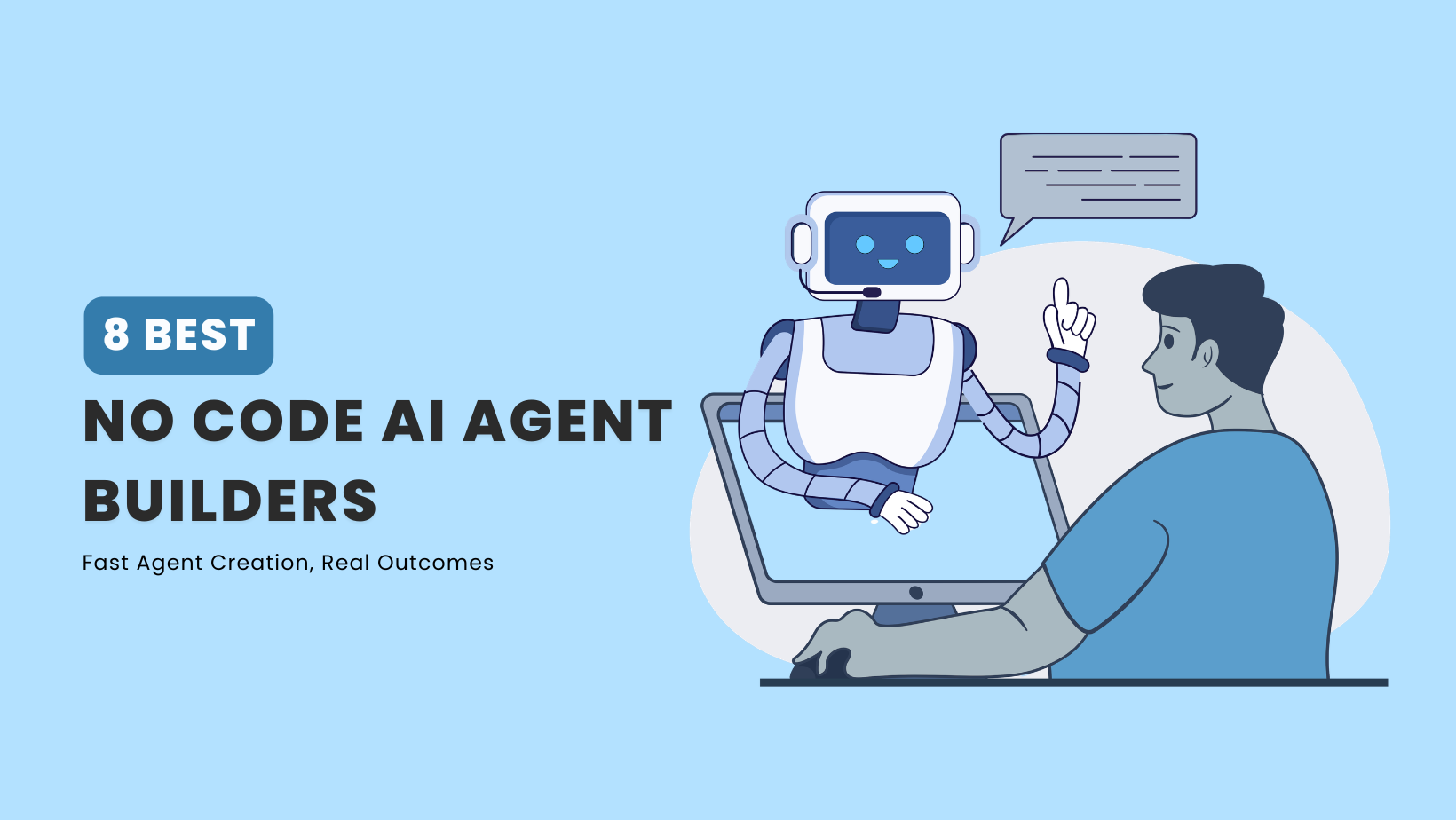
TL;DR The best no-code AI agent platform depends on your team’s style and the problem you want to solve first. For broad business use, YourGPT shines with omnichannel task-completing agents. n8n is ideal if you need workflow control and opensource. For advanced autonomous behavior and experimentation, AutoGPT leads with goal-driven AI. Start with one meaningful […]

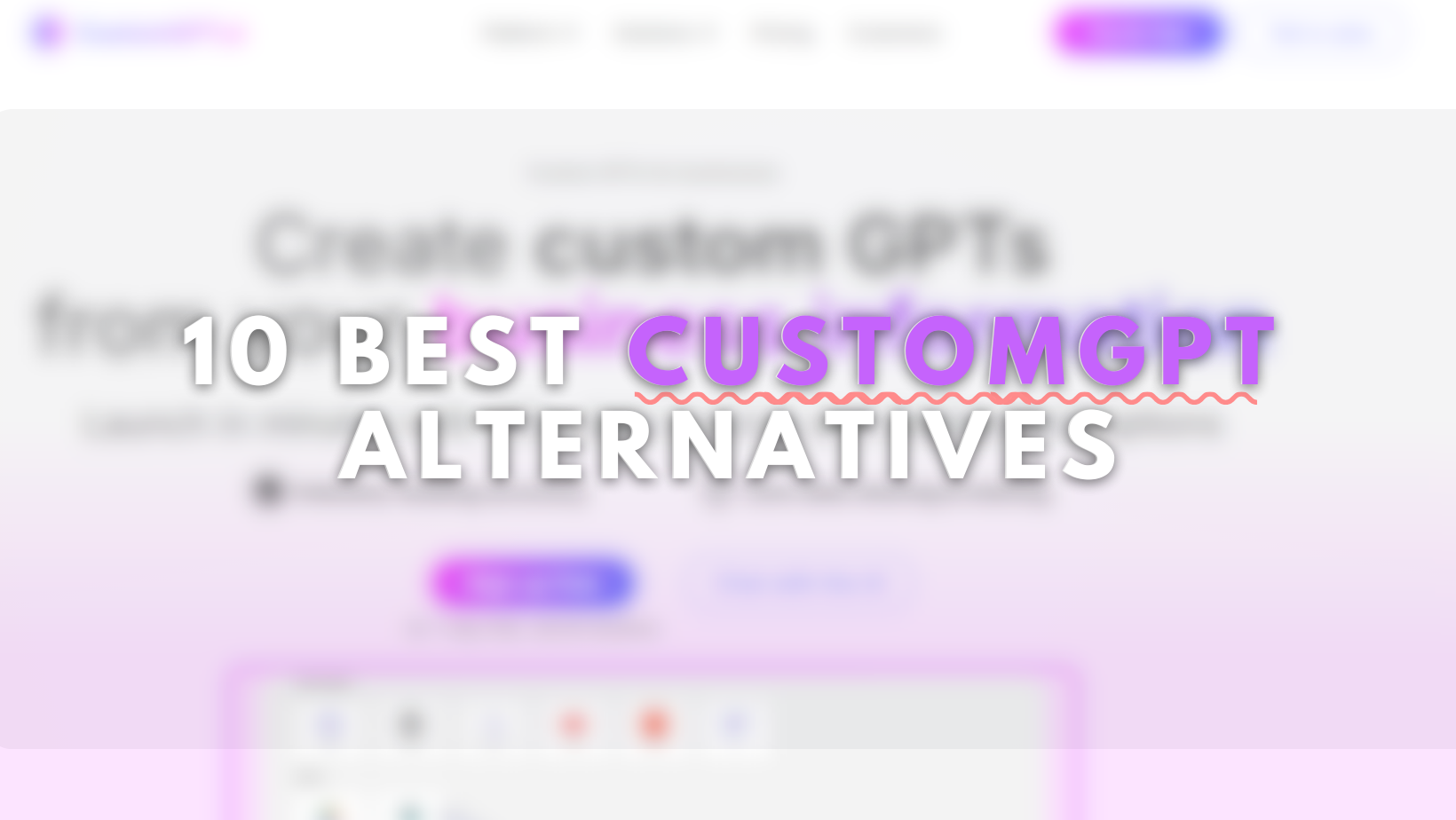
TL;DR CustomGPT.ai offers basic no-code chatbot features. This blog compares 10 alternatives with stronger automation, integrations, and flexibility for scalable customer support. CustomGPT is a no-code AI chatbot platform that allows businesses to build question-answering systems using documents and internal knowledge bases. It is primarily designed for retrieval-based use cases, where users ask questions and […]

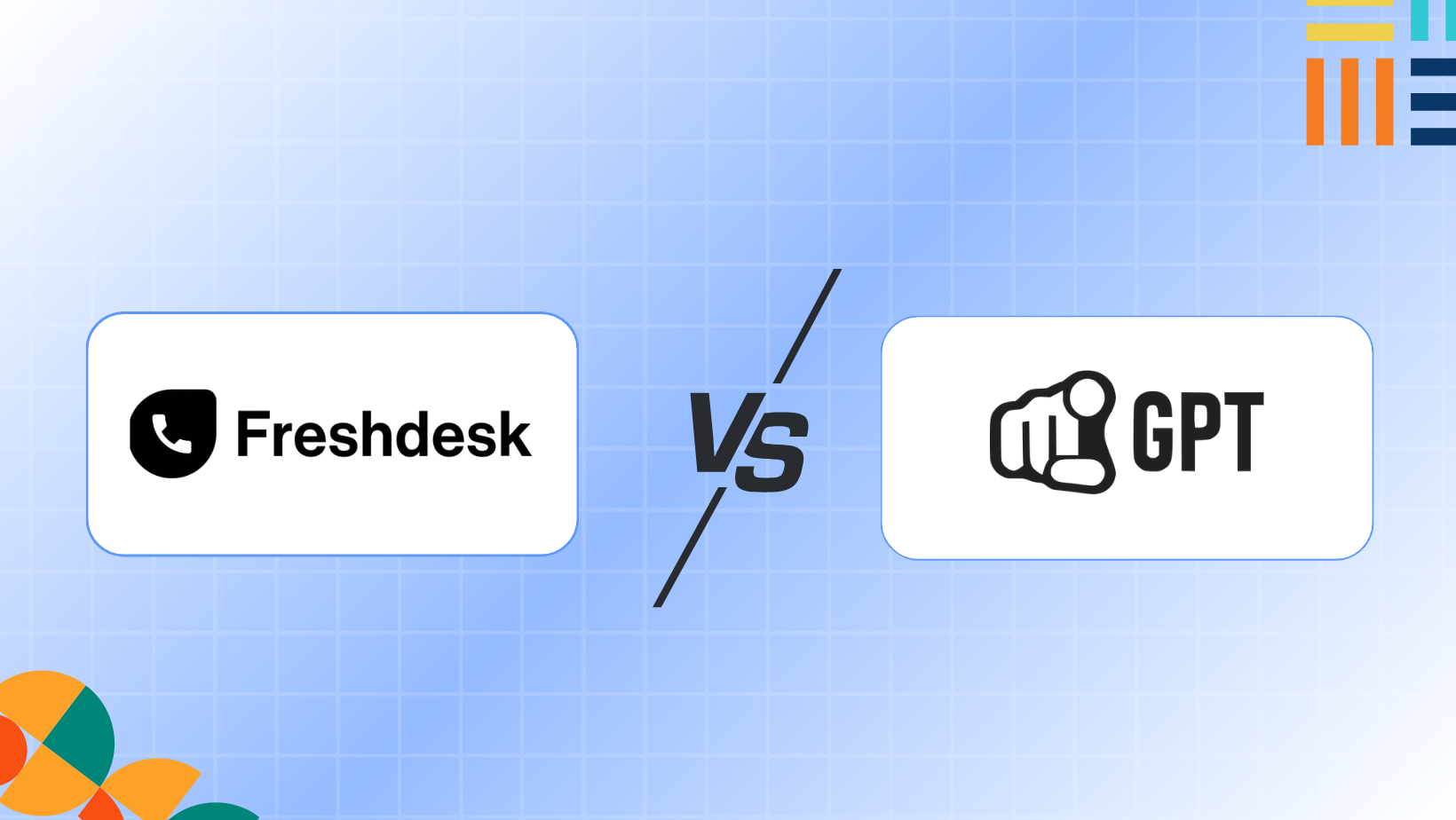
TL;DR: The Core Difference YourGPT Built around AI agents that handle conversations, run workflows, and resolve issues on their own across channels. The goal is to reduce incoming support volume by solving problems before they reach a human. Freshdesk Built around structured ticketing. It focuses on organizing queues, managing SLAs, and tracking agent performance. Humans […]


TLDR Zendesk works well for ticket-based support, but it can feel limiting as teams rely more on automation and multi-channel conversations. This guide compares 7 practical Zendesk alternatives that reduce manual handling and let AI manage common requests across chat and messaging tools Zendesk is one of the popular customer support platform has been around […]

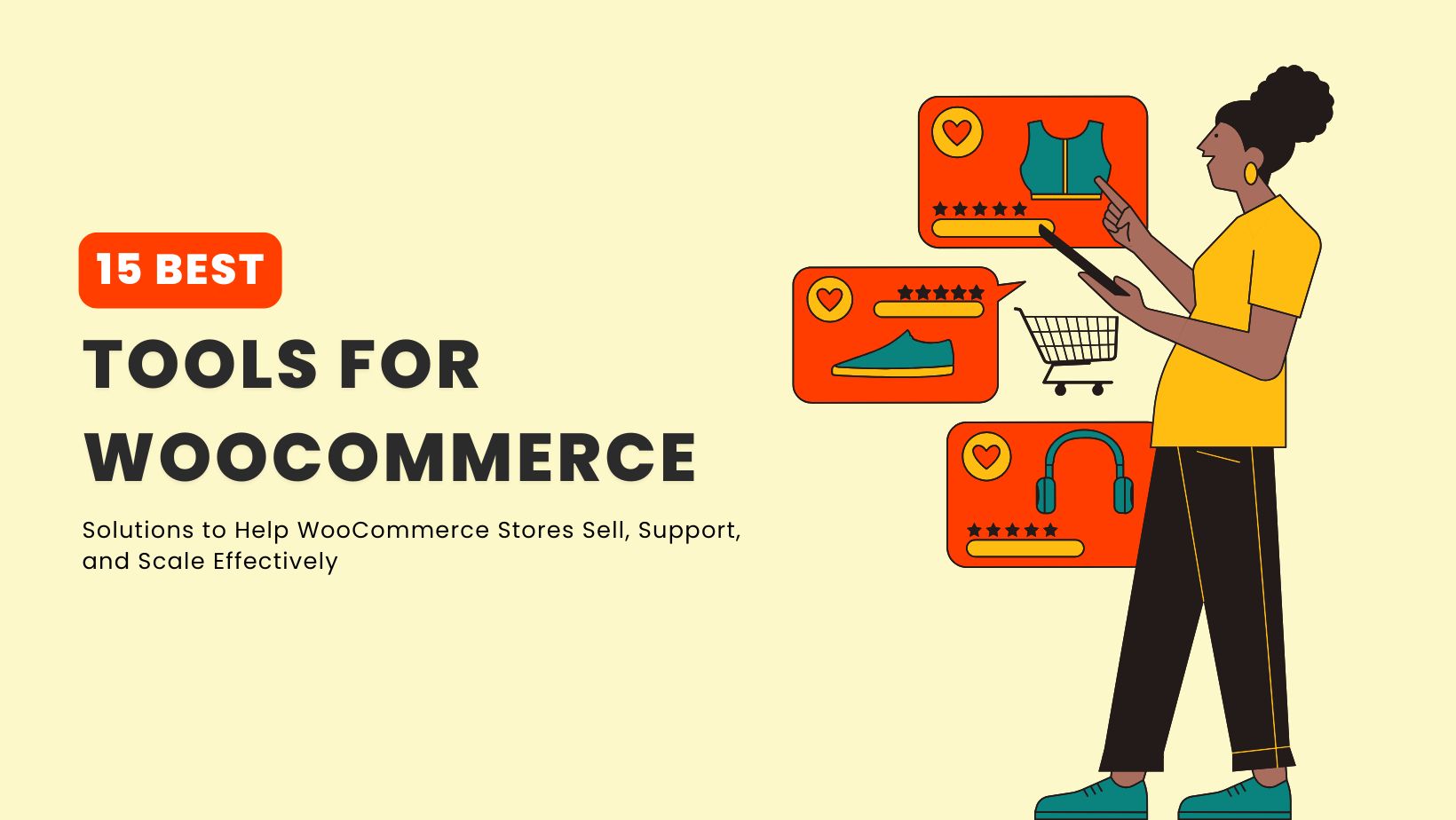
WooCommerce gives store owners flexibility, but that flexibility comes with trade-offs as a store grows. Over time, pages slow down as plugins accumulate, carts get abandoned without obvious reasons, and customer questions start consuming more time than expected. These issues rarely appear all at once, but they compound quickly and directly affect revenue. After working […]

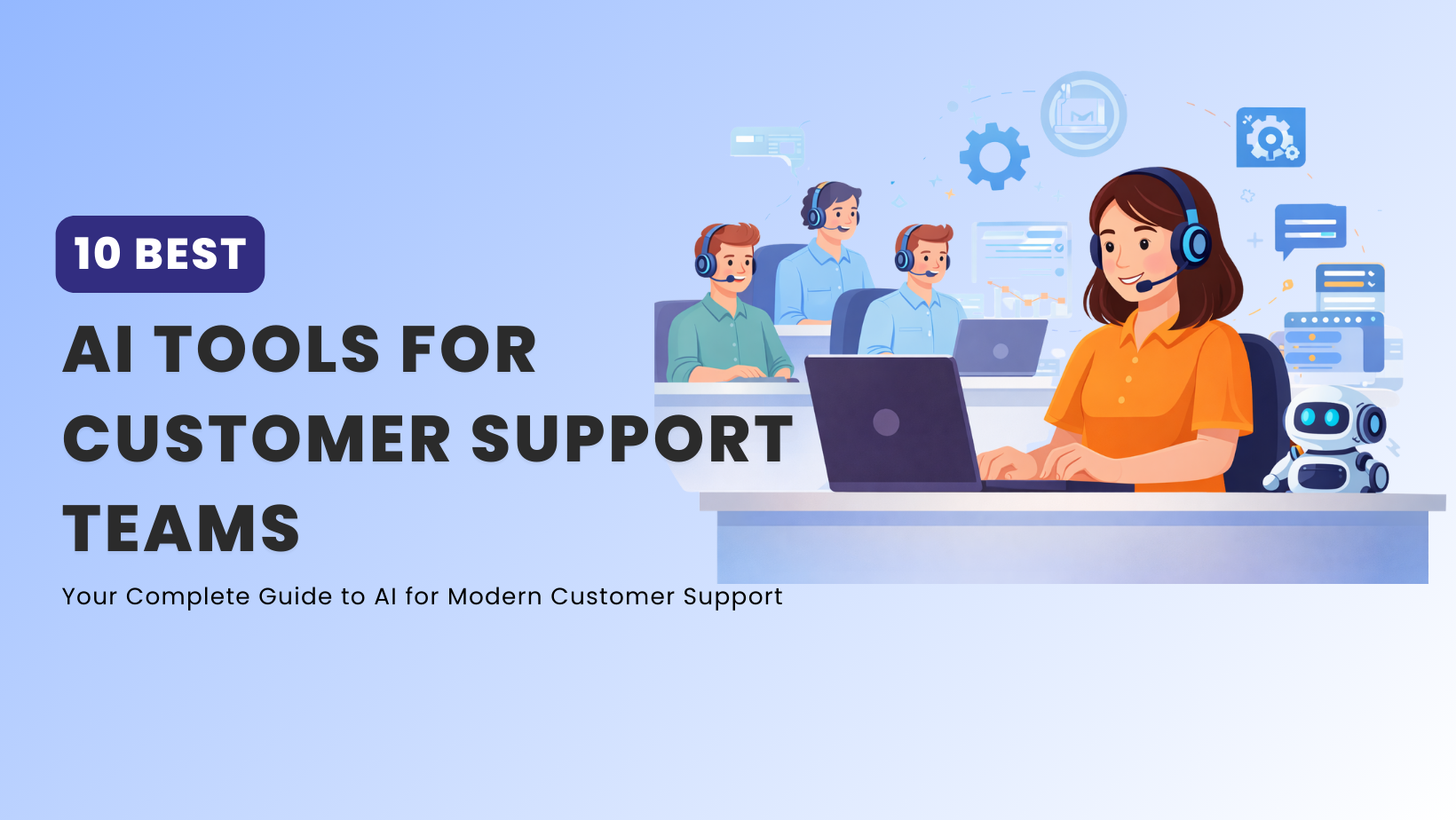
AI customer support tools now form a core part of how many teams handle growing contact volumes and rising customer expectations. At the same time, the market has become crowded, with many similar-looking products and overlapping claims, which makes evaluation harder for support leaders. The AI customer service segment grew from about $12 billion in […]
